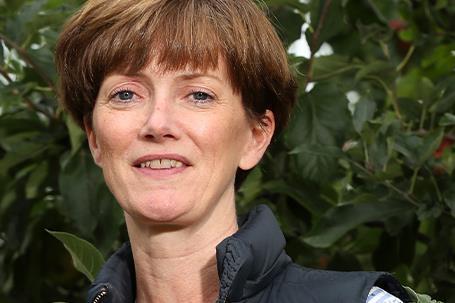BAPL chair Ali Capper tells FPJ why she thinks banning plastic packaging for apples and pears is not the answer

Single-use plastic packaging in produce is a much more complex issue that many people fully appreciate. And it’s one that growers feel very keenly. This is because the growers have to buy and pay from whatever packaging the retailer dictates, often without feeling they have much control over it.
Back in June, BAPL commissioned and published a report setting out our position on single-use packaging in the topfruit sector. What we said there is that it is a complex, but important, area of focus.
We feel we need to get government, retail – and NGOs – to work through the best possible solution. And that’s because it is complex and not as simple as getting rid of the packaging. These are the reasons why it’s complex:
- The flow wrap on the six-pack and the four-pack is actually recyclable. But not currently at curbside. It’s only recyclable if you take it back to store, and we fully appreciate that this is inconvenient for most consumers. I think there is some pressure on government to ensure they meet the 2027 deadline to make this type of packaging recyclable at curbside, or even to bring it forward. I would like to help them achieve that, and if I can influence them bringing that forward, I would like to do that.
- The UK, as a society, would like to see its recycling infrastructure improved generally to make sure that where our material is recyclable it is actually being recycled, rather than incinerated.
- But we want a unified approach, because most grower-packers serve a large number of retailers. In almost every case, the grower is serving more than one retailer. What we have across topfruit at the moment is a high degree of consistency in terms of machinery and processes in the packhouse. For example, if you have a grower serving Tesco and Lidl, when they change from supplying Lidl to Tesco, the machines are the same, the lines are the same, the packaging is the same. Everything is identical, apart from the label. This makes for a super-efficient and fast supply chain.
The reason we launched our report in June is that we don’t want retailers using packaging as a point of differentiation. If they did, they would probably demand packers have different machines and different lines for different retailers – generating inefficiency and significant capital cost for growers.
Through our report, we are trying to convene retailers, Defra and NGOs to come together and to discuss the issue. Because we think that for flexible plastics, the answer is either: let’s bring forward to recycling at curbside from 2027 to 2025, or the industry needs to work together to find an alternative packaging solution that is consistent across the sector.
Wrap has over-simplified what is a very complex issue. Do I see a time when there is no packaging on topfruit? No, unless there is significant investment from retail in their own stores and staff. Why can’t they go from packed to loose? In many supermarkets the shelf is the wrong angle. It is a very steep angle, so when you put loose fruit on it, it rolls off.
Secondly, it is much faster and simpler for staff to put out crates of product than to putting out loose product. Fresh produce displays take people, time and money. Retailers would need to invest in new shelving infrastructure in stores, as well as more staff. And selling loose apples and pears would inevitably create more waste in store.
Our shopping culture is for convenience and speed. We have spent at least 30 years educating consumers that they can pick up a pack of apples and walk out. That is going to take a lot of undoing. It is going to take at least a decade – or even two – to reeducate consumers to buy loose.
A more pragmatic approach, I think, would be to find solutions to the recycling of the packing we are using. And to ensure that whatever the solution ends up being, it is consistent across the sector. That is really important.



